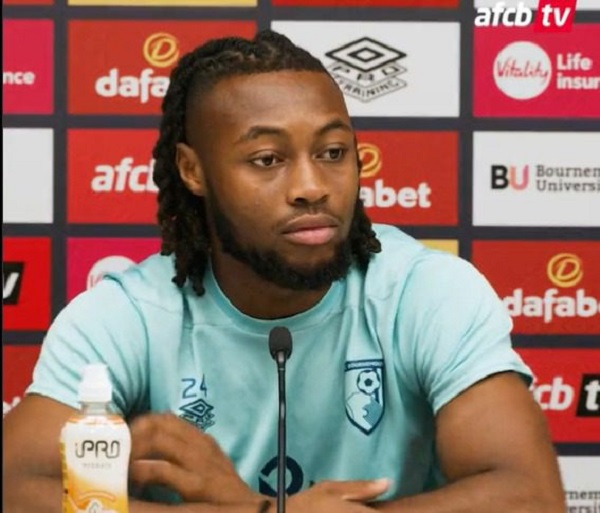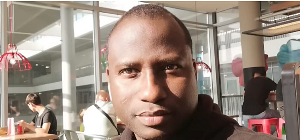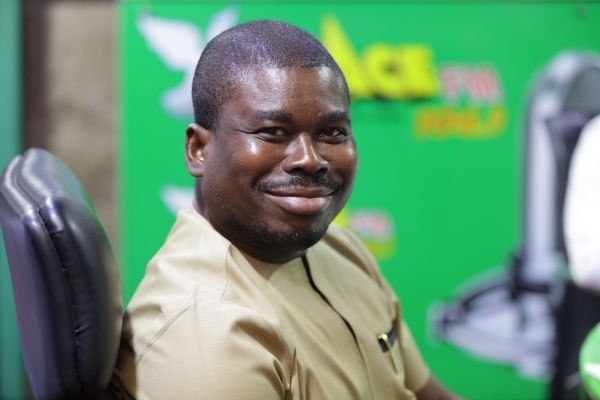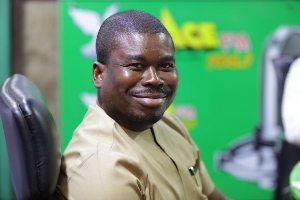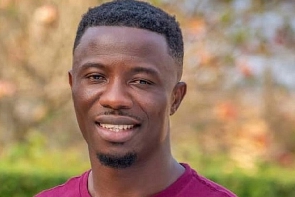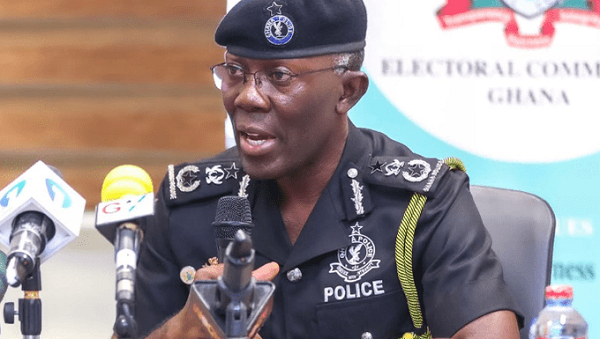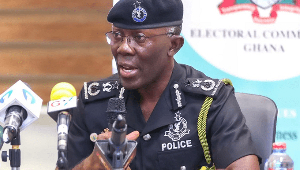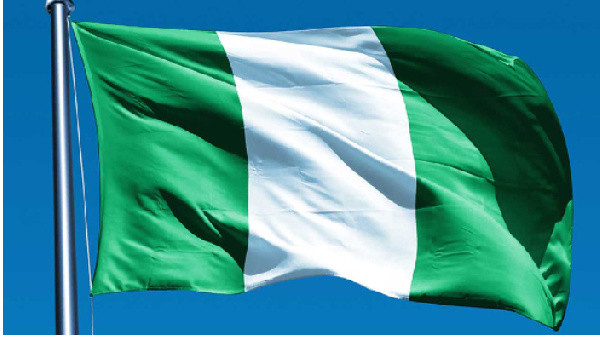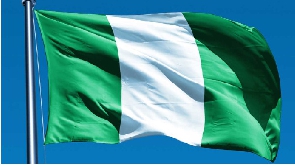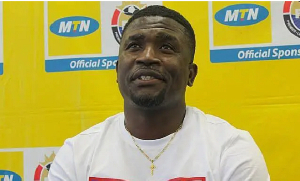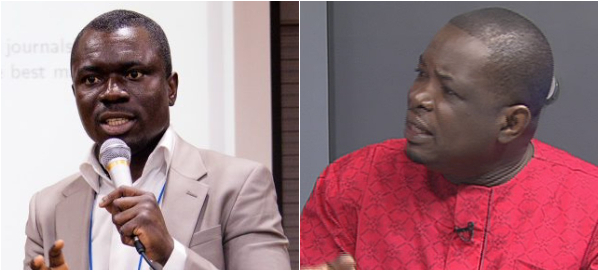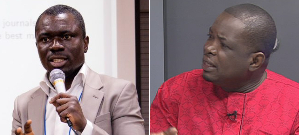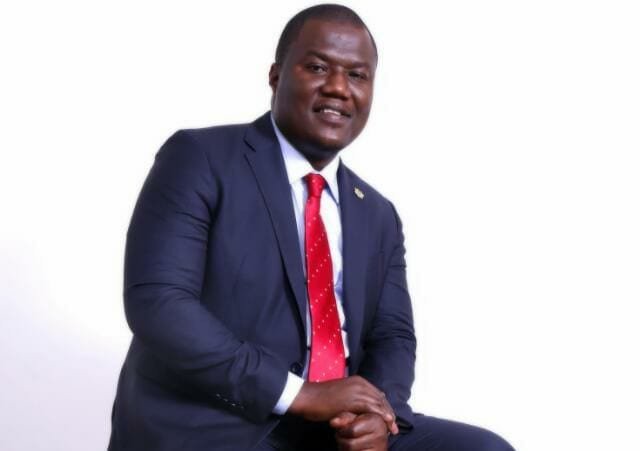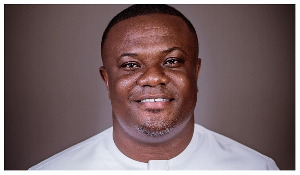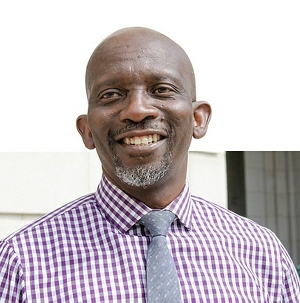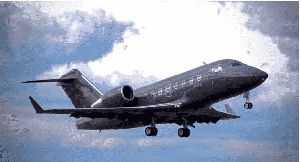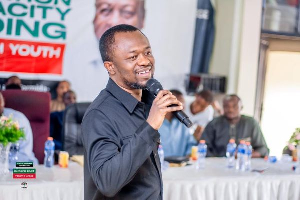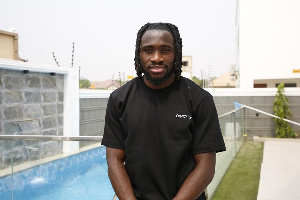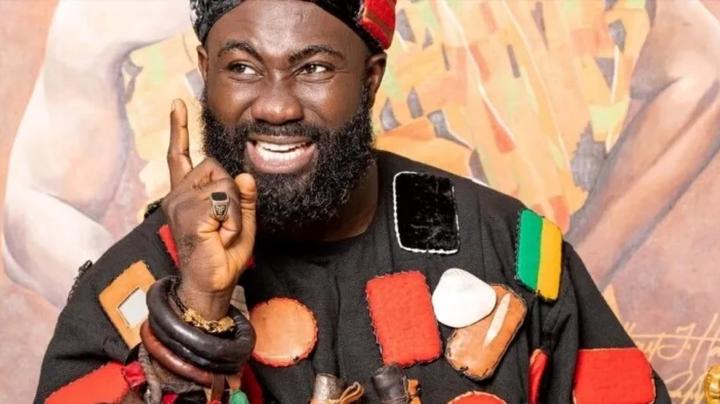On January 23, 1915, two boatmen named Dolly Jenniker and Zulu Madhliwa drowned in the Orange River in South Africa. They were ferrying supplies to Union of South Africa forces which had invaded German South West Africa (GSWA, now Namibia) as part of the Allied campaign against Germany in World War I.
When the Allies declared war on Germany, both sides’ colonies had been automatically included: South Africa was part of the British Commonwealth and Germany had colonies in GSWA and German East Africa (now Tanzania).
The river was flooded, and the heavily laden vessel was no match for the rapids now popular among white water rafters who take them on for fun. Jenniker’s wife, Molly, who was waiting for him at their home in Port Elizabeth, never got to see him again. And, back in Amanzimtoti, near Durban, Madhliwa’s father, Ngobongwana, only learned of his son’s death when he received his son’s £3 of unpaid wages in the mail.
Beyond these bare facts, little has been known for more than a century about Jenniker and Madhliwa – or any of the other 1,700 South Africans of colour who died in World War I in Africa.
But now, these men will finally be recognised by a new memorial in the Company’s Gardens – the vegetable gardens established by the Dutch East India Company when they set up a victualling station at the Cape in 1652 – in the heart of Cape Town.
The memorial, organised and funded by the Commonwealth War Graves Commission (CWGC), will be unveiled on Wednesday, January 22. It aims to right a 110-year-old wrong by commemorating each of these World War I labour corps veterans with an African iroko hardwood post bearing his name and the date of his death.
The Cape Town memorial only commemorates men who did not carry arms and who lost their lives in Africa – other South Africans who died in World War I have already been commemorated elsewhere. The memorial is the first phase of a drive to remember the estimated 100,000 Black Africans who lost their lives in Africa on the Allied side in the Great War.
Another iroko post bears the name of Job Hlakula, an ox driver who died, as far as researchers can tell, on his way home from East Africa on April 1, 1917. His great-grandson, Zweletu Hlakula, is proud that the family’s sacrifice is finally being recognised: “We all say we had a soldier that passed on our behalf who was fighting for our freedom. We are very proud of him … It’s a pride that we’ve got in our name, in our family about him … For him to be remembered, for him to be in the history of our South Africa… that makes us very humble to hear his name on the memorial.”
No stone unturned
The CWGC was founded in 1917 while the bloodiest World War I battles were ongoing to “recognise the sacrifices made by people from across the British empire”, says George Hay, the commission’s chief historian. Its mandate was subsequently expanded to include World War II casualties.
With half a million bodies it couldn’t account for (a combination of missing bodies and unidentified ones), the CWGC started building memorials to the missing, such as the more than 72,000 commemorated at Thiepval in France and the nearly 55,000 at Ypres in Belgium. “The idea was to provide a space to honour and mourn the people who were denied a grave by the fortunes of war,” explains Hay.
As Field Marshal Herbert Plumer, one of the main commanders on the Western Front in World War I, said in 1927 at the unveiling of the Ypres Memorial: “He is not missing, he is here.”
The CGWC’s founding documents “very clearly stated that it would commemorate everyone who died, without distinction”, says Hay. But this didn’t always happen: “More than a hundred years later we are still righting wrongs, filling in gaps,” he adds.
Most of the estimated 11,500 South Africans – white and Black – who lost their lives in the Great War have been commemorated in some form. Due to the country’s racialised politics, only white South Africans were allowed to carry arms during World War I, and those who died are remembered at graves and memorials both abroad and at home. The one exception to this “whites-only” rule was the Cape Corps, an “experimental” armed unit of mixed-race, “coloured” men who served with distinction in both East Africa and the Middle East.
But thousands of Black non-combatants who supported their white South African countrymen as labourers and carriers were also killed between 1914 and 1918.
Not all of them were forgotten. The South African Native Labour Contingent (SANLC) labour corps assisting white South African troops in Europe during World War I is relatively well-documented, and the 980 SANLC men who died are commemorated at memorials around Europe.
The majority of the SANLC’s casualties occurred on a single day: 607 Black servicemen were killed when the SS Mendi – which was bringing men from Cape Town to France – went down in the English Channel on February 21, 1917. The men who died on the Mendi have been commemorated at monuments in South Africa, the United Kingdom, France and the Netherlands – not to mention in various place names, books and films and via a prestigious medal: The Mendi Decoration for Bravery which is awarded by the South African government to citizens who “performed an extraordinary act of bravery that placed their lives in great danger”.
Survivors recounted how the men who died on the Mendi met their fate with enormous dignity, stamping their feet in a “death dance”. Their pastor, the Reverend Isaac Dyobha, is said to have calmed his flock by raising his arms to the skies and loudly declaring, “Be quiet and calm, my countrymen. What is happening now is what you came to do … You are going to die, but that is what you came to do.
Brothers, we are drilling the death drill. I, a Xhosa, say you are my brothers … Swazis, Pondos, Basotho … so let us die like brothers. We are the sons of Africa. Raise your war cries, brothers, for though they made us leave our assegais in the kraal [a reference to the fact that Blacks were not allowed to bear arms], our voices are left with our bodies.”
But while the sinking of the Mendi is famous in South Africa, the Black support crew who lost their lives in African theatres of war had been roundly forgotten – until now.
That changed with the chance discovery of a bound collection of handwritten casualty records in a South African National Defence Force (SANDF) Documentation Centre in Pretoria in 2017 by someone working on the South African War Graves Project. “A century ago, someone had taken the time to record the sacrifices made by these 1,700 men,” says Hay. “But those records were never shared with the Commission.” While not every man to be commemorated by the new memorial belonged to South Africa’s Black population (there is at least one European on the list – a man who was born in Cornwall, southeast England but who had moved to South Africa before 1900), the vast majority – and all those drawn from these new records – did.
“Why were these guys left out?” muses Hay. “We may never know if it was accidental or deliberate.” Either way, it is not surprising that the forgotten men died in Africa and were dark-skinned. At the Versailles Peace Conference in 1919, American delegate George Beer noted he “had not seen the tale of native victims in any official publication”.
Africans who died in Africa
Of the 1,772 men remembered by the new Cape Town memorial, says Hay, probably fewer than 100 lost their lives due to their involvement in the relatively hassle-free German South West Africa campaign of 1914 and 1915. The rest are believed to have died in the East Africa Campaign which, thanks mainly to the relentless guerilla tactics of German commander Colonel Paul von Lettow-Vorbeck, dragged on for four years and killed hundreds of thousands. More than 90 per cent of the people who died were Black – and most of them died from malnutrition and disease, especially malaria.
“Despite its cost in men and money [about $13bn in today’s money] the campaign in East Africa was, and is, often referred to as a mere sideshow,” writes Edward Paice in Tip and Run: The Untold Tragedy of the Great War in Africa. While the East Africa campaign did have little bearing on the overall outcomes of the war, it should not be dismissed, argues Paice: “The war in Africa put imperialism itself, and all the highfalutin talk of the European Powers’ ‘civilising mission’ on trial.”
As the legendary civil rights activist WEB DuBois wrote in a 1915 essay titled The African Roots of War: “In a very real sense Africa is a prime cause of this terrible overturning of civilisation which we have lived to see [because] in the Dark Continent are hidden the roots not simply of war today but of the menace of wars tomorrow.”
DuBois continued: “Twenty centuries after Christ, Black Africa, prostrate, raped, and shamed, lies at the feet of the conquering Philistines of Europe.”
White European soldiers outlined just how challenging the conditions in East Africa were for them. One young British officer, named as Lewis, had watched in horror as every man in his unit was slaughtered in the trenches of Europe. But, 16 months later, Lewis wrote to his mother from East Africa to say: “I would rather be in France than here.”
Colonel HL Pritchard, a British soldier, wrote of his experiences in a “country three times the size of Germany, mostly covered by dense bush, with no roads and only two railways, and either sweltering under a tropical sun or swept by torrential rain which makes the friable soil impassable to wheeled traffic”. He wrote of malaria and insects in a terrain “where crocodiles and lions seize unwary porters, giraffe destroy telegraph lines, elephants damage tracks, hippopotami attack boats, rhinoceroses charge troops on the march, and bees put whole battalions to flight…”
If anything, Lewis and Pritchard – white commissioned officers – had it easier than the Black carriers who facilitated the East African war effort. As one British official, Hector Livingston Duff who served in the Nyasaland Field Force in World War I, wrote in 1925: “Can you wonder that [the carriers] suffered, and suffered terribly? Of course, they did. These poor, spiritless, ragged creatures had to hump their heavy packs and follow some of the most active and hardy troops that ever took to the field, over a fearfully difficult country, through one of the most prolonged and rapid wars of movement ever known.”
The ‘Aragon incident’
Disease was one of the chief causes of death for these workers. More than half of the men commemorated in the Cape Town memorial died of malaria, while others fell victim to other diseases including dysentery, pneumonia and influenza. The majority of the men died on terra firma, but more than 100 died from disease and malnourishment on board the HMT Aragon in March and April 1917, while being repatriated from the East African front to South Africa on health grounds.
Published in 1918, the Pike Report on Medical and Sanitary Matters in German East Africa is a model of bland understatement. Even so, its account of the “Aragon incident” is chilling.
When the ship left Kilwa Kisiwani, off the coast of present-day Tanzania, the Aragon was carrying 1,362 “natives”, all of whom were “unfit, full of malaria, and appeared to have no resisting power left for relapses”, according to Surgeon General William Watson Pike. To make matters worse, “the Aragon was detained in Kisiwani harbour for about 9-10 days and during that time 74 deaths occurred.” By the time it reached Durban, this number had swelled to at least 129.
One of the men who died on the ship was Maeli Makhaleyane, an ox driver who enlisted with the South African Labour Corps at the diamond mining town of Kimberley on November 21, 1916. His death certificate notes that, after two hospital stays in East Africa, he was “repatriated per Aragon”. He boarded the ship on March 30 and died of malaria 16 days later.
In his report, Pike concluded that the senior medical officer committed “an error of judgement in sending these 1,362 men, knowing their past history as he did, to sea without making adequate medical provision to meet their requirements”. Pike added that the “general condition of those on the Aragon was much below the average” for various reasons including being “saturated with malaria and dysentery” and being “very depressed by the [many] delays”.
Being buried at sea in a simple ceremony which saw each body “committed to the deep” meant a distressing lack of closure for their loved ones. As Mbonsiwa Maliya, the grandson of Magwayi Maliwa who died on April 15, 1917, says: “It has impacted us a lot, especially me. I struggled trying to find out what happened to him. His body was not brought home.”
Now, the families of Aragon victims including Jack December (who came from Kimberley and worked as a driver in East Africa), Mack Mokgade (a railway worker from Paulpietersburg) and Piet September (an ox-driver from Kimberley) can pay their respects at their respective iroko posts in Cape Town.
Usually, the CGWC builds memorials in the theatres of war themselves. This time, the decision was made to mark the men’s deaths in their country of origin – partly because it wasn’t possible to identify where each of the men fell, and also “to concentrate the commemoration of a body of men who had been excluded at the time and effectively written out of history since”, says Hay.
The Commission is currently working on a much larger project to commemorate at least 89,000 Black East Africans who died for the Allied cause in World War I. While no formal plans have been made yet, the commission says it is committed to honouring these people – in collaboration with the affected communities.
Even more Black Africans, including tens of thousands of women and children, are thought to have died on the German side. There are no known plans to commemorate these people, although Germany is – finally – starting to come to terms with the atrocities it committed in East Africa.
For now, however, the Cape Town memorial will be celebrated. Located in the same precinct as South Africa’s National Museum, National Gallery and National Library – and a replica of the Delville Wood Memorial (the original, in France, commemorates the 2,500 South Africans who died while heroically defending their position in a dense thicket known as Delville Wood in July 1916) – it will give the 1,772 men’s descendants a place to mourn them, while also highlighting their sacrifice to the millions of people who pass through the gardens each year.
“This memorial, dedicated to the South African men of the Labour Corps who served in World War I, is a reminder of a history that is often left out of textbooks and public discourse,” says South African poet Koleka Putuma, who co-wrote a poem to celebrate the memorial’s unveiling.
“These men – grandfathers, sons, brothers, and descendants of chiefs – were sent far from home to fight in a war that was not theirs. They left behind families, villages, and traditions, and many never returned.”
Their names and stories have been obscured by time, adds Putuma, “but this memorial seeks to correct that, to give voice to their lives, and to remember them as more than just a footnote”.
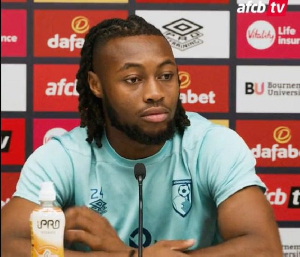 Antoine Semenyo, forward for Bournemouth
Antoine Semenyo, forward for Bournemouth